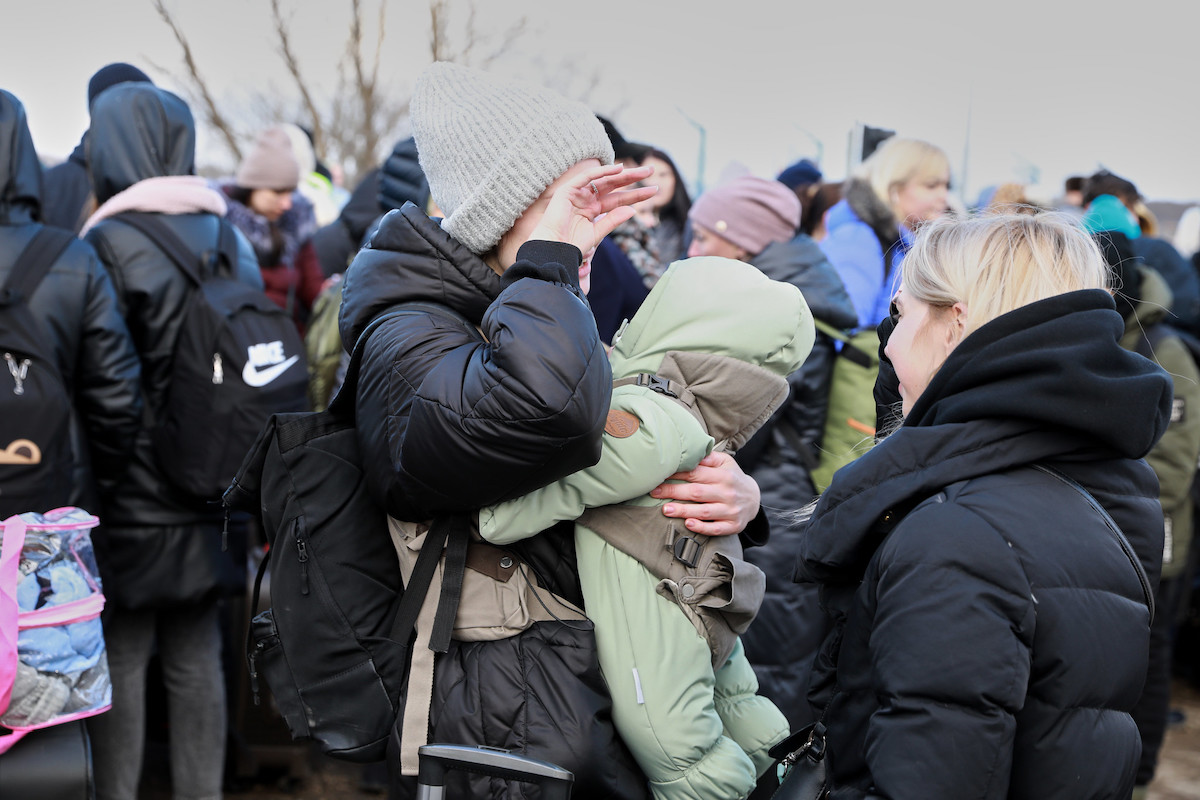In Ukraine, activists step up to support conflict-related sexual violence survivors
Date:
Since the full-scale Russian invasion of Ukraine last year, violence has become a daily reality for millions of Ukrainians, with more than 20,0000 recorded civilian casualties and over 13 million people displaced. Confronting destruction, loss and death, women, girls and people of all genders face another, often less visible threat: heightened rates of rape and sexual violence.
Conflict drives sexual violence in multiple ways. Rape and other sexual abuses may be directly perpetrated by armed forces, while heightened economic and societal instability provide the conditions for increased sexual exploitation, trafficking, and other forms of sexual abuse. At the same time, the breakdown of justice, healthcare and other systems makes support even harder for survivors to access.
On 19 June, the International Day for the Elimination of Sexual Violence in Conflict, we honour the women and women-led organizations at the front lines of the struggle to support survivors, hold perpetrators accountable and end sexual violence in conflict once and for all.

Multiplying threats
Over the past sixteen months, a pattern of sexual violence has emerged in Ukraine: “Rape—usually gang rape—sexual torture, forced nudity […] and other forms of abuse have been documented by journalists, human rights organizations and law enforcement agencies,” says Hrystyna Kit, a Ukrainian women's rights advocate and attorney. Though the true scale remains unknown, she explains, it’s clear the impacts will be lasting: “We will have to work with the consequences of [conflict-related sexual violence] for many years to come.”
In the context of the war, other forms of violence against women have also become harder to address. “It’s difficult to move forward in the fight against violence against women when you live in a state of war,” says Hrystyna. “People who were abusive and violent within the family […] continue to commit acts of violence,” but, with resources and attention shifted to the war, “women and girls have become even less protected,” she explains.
Though they may look different, these various forms of violence are inherently connected, highlights Larysa Denysenko, a Ukrainian journalist, attorney and human rights activist. “Any violence—including conflict-related sexual violence (CRSV)—is about power relations and dominance. Perpetrators want to demonstrate their power; they want to prevail,” she says. “That is why sexual violence is so common during wars and armed conflicts. The root of this aggression and impunity lies in domestic violence.”

Expanding access to justice and support
In 2017, Hrystyna and Larysa co-founded the Association of Women’s Lawyers of Ukraine JurFem, workingto provide legal assistance to survivors of domestic violence. With the start of the Russian war against Ukraine, JurFem’s phone lines quickly became flooded with reports of sexual violence: “Both women and men—but mostly women—were calling […] to report sexual violence that they, or their close ones, had been subjected to,” says Larysa.
In response, the organization partnered with UN Women to launch the initiative “JurFem: Support”, offering assistance to sexual violence survivors and working to repave the way for justice and accountability. Under this initiative, the organization provides free legal advice and support, helping survivors bring their cases to court and assisting them throughout. They also assist survivors in accessing medical and psychological care, shelters and other support services.
“The violence against women and girls that denies a woman’s agency cannot be neglected as something unimportant,” emphasizes Larysa. Adds Hrystyna, “Justice must be restored so this never happens again.”